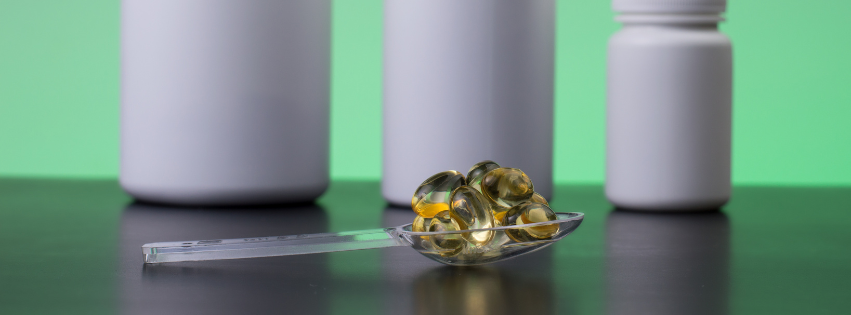
Which Supplements Are Actually Worth Taking?
BALA BITES: ARE SUPPLEMENTS WORTHLESS OR WONDERFUL?
Supplements are polarizing.
Some medical professionals say they're useless (like Johns Hopkins University) and others suggest they’re life-changing due to known population-level deficiencies (like Dr. Garland). There's no shortage of nuanced views in between.
Americans spend $71.6 billion a year on dietary supplements. And yet we are the most unhealthy of all developed nations.
How should you think about the role of supplements in your life? Here is my view.

First, supplements do not make up for poor diet and lifestyle habits. They can help supplement changes in those but they are not replacements. Example: Magnesium for better sleep when paired with good sleep hygiene habits. Creatine for muscles when paired with weight training.
Second, while some research shows that supplements have zero positive effect at a population level, they can still have a meaningful impact on an individual level. Public health can differ from personalized health.
Lastly, take an experimental approach with supplements. Be strategic with them to determine if they actually work. Taking breaks from supplements that are not under doctor's order can help you determine if they have a meaningful effect.
Here's a no-fluff cheat sheet for the supplements we have experience with.
BACKED BY SCIENCE
These supplements have solid, peer-reviewed backing. If you take them for the right reasons, pair them with supportive behaviors and only purchase from high-quality sources, luck is in your favor.
- Creatine: Muscle, brain, and aging support.
- Vitamin D3: Immunity, mood, and bones.
- Omega-3s: Cardiovascular health, mood, inflammation.
- Magnesium (especially glycinate): Sleep, stress, muscle function.
- Protein Powders: Meal insurance. Muscle repair.
- Probiotics (strain-specific): Gut health, recovery post-antibiotics, maybe mood, can help but not fix dysbiosis.
MIXED EVIDENCE
These aren’t snake oil, far from it. But benefits depend on the individual, dosage and context. Some are helpful. Others? You get expensive urine. They are less likely to be backed by concrete, take-it-to-the-bank research.
- Multivitamins (fine, but underwhelming)
- Collagen (may help skin/joints, absorption varies)
- Curcumin (anti-inflammatory, but hard to absorb)
- B-complex (good if deficient)
- Glucosamine/chondroitin (hit or miss for joints)
MOSTLY HYPE
These promise the moon but rarely deliver. Save your money (and your liver) by skipping these until stronger evidence emerges.
- Fat burners
- Natural testosterone boosters
- Greens powders (unless you're veggie-starved)
- Detox teas
- “Smart drugs”
- Nootropic blends
- Secret “anti-aging” formulas
Bottom line: Supplements are tools. If you don’t know the problem, grabbing tools won’t help. But the right tool for the right job? It can be a total game changer.
ARE THERE KNOWN CONCERNS?
It’s important to name the risks associated with supplements because they do exist.
- Lack of regulation: The FDA doesn’t vet supplements the way it does drugs. Ingredients can vary by batch and brand.
- Contaminants: Independent labs have found heavy metals, unlisted drugs and allergens in some over-the-counter products.
- Liver and kidney strain: Overuse of fat-soluble vitamins, iron and certain herbs can stress your liver and kidneys.
- Interaction risk: Supplements can interfere with prescription meds, especially blood thinners, antidepressants and heart meds.
- Dosing issues: More isn’t better. Too much of a “good” thing can backfire.
Always vet brands for third-party testing (our favorite independent testing agencies are NSF Certified and Informed-Sport to name a few).

And don't fall for a product just saying it's 3rd party tested. If it's not named, it's not credible.
Also talk with your medical provider if you take meds or have a health condition before starting any supplementation program.
SUMMARY
- Many supplements are unregulated and can contain contaminants, incorrect doses, or unlisted ingredients.
- Evidence strongly supports creatine, vitamin D, omega-3s, magnesium and targeted probiotics—if used correctly.
- Supplements like multivitamins, collagen and turmeric have mixed evidence and modest benefits.
- Fat burners, detox teas and greens powders are mostly hype with little proven impact.
- The best strategy: know your needs, choose quality, and treat supplements like tools, not magic pills.
FURTHER READING
- Your protein powder buyer's guide. Learn how to choose the best protein powder for your body and goals.
- Creatine is having its moment. How to decide whether it should be part of your health stack.
- Giving your immune system top-tier support.Learn how to eat for optimal immunity.